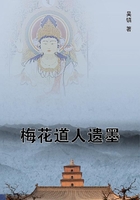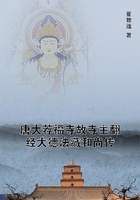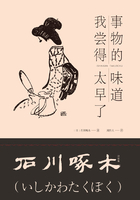But the same maturity of culture which at a certain period produced parody among the Greeks, did the same in Italy.By the close of the fourteenth century, the love-lorn wailings of Petrarch's sonnets and others of the same kind were taken off by caricaturists; and the solemn air of this form of verse was parodied in lines of mystic twaddle.Aconstant invitation to parody was offered by the 'Divine Comedy,' and Lorenzo il Magnifico wrote the most admirable travesty in the style of the 'Inferno' (Simposio or I Beoni).Luigi Pulci obviously imitates the Improvisatori in his 'Morgante,' and both his poetry and Boiardo's are in part, at least, a half-conscious parody of the chivalrous poetry of the Middle Ages.Such a caricature was deliberately undertaken by the great parodist Teofilo Folengo (about 1520).Under the name of Limerno Pitocco, he composed the 'Orlandino,' in which chivalry appears only as a ludicrous setting for a crowd of modern figures and ideas.Under the name of Merlinus Coccaius he described the journeys and exploits of his fantastic vagabonds (also in the same spirit of parody) in half-Latin hexameters, with all the affected pomp of the learned Epos of the day ('Opus Macaronicorum').Since then caricature has been constantly, and often brilliantly, represented on the Italian Parnassus.
About the middle period of the Renaissance a theoretical analysis of wit was undertaken, and its practical application in good society was regulated more precisely.The theorist was Gioviano Pontano.In his work on speaking, especially in the third and fourth books, he tries by means of the comparison of numerous jokes or 'facetiae' to arrive at a general principle.How wit should be used among people of position is taught by Baldassare Castiglione in his 'Cortigiano.' Its chief function is naturally to enliven those present by the repetition of comic or graceful stories and sayings; personal jokes, on the contrary, are discouraged on the ground that they wound unhappy people, show too much honour to wrong-doers, and make enemies of the powerful and the spoiled children of fortune; and even in repetition, a wide reserve in the use of dramatic gestures is recommended to the gentleman.Then follows, not only for purposes of quotation, but as patterns for future jesters, a large collection of puns and witty sayings, methodically arranged according to their species, among them some that are admirable.The doctrine of Giovanni della Casa, some twenty years later, in his guide to good manners, is much stricter and more cautious; with a view to the consequences, he wishes to see the desire of triumph banished altogether from jokes and 'burle.' He is the herald of a reaction, which was certain sooner or later to appear.
Italy had, in fact, become a school for scandal, the like of which the world cannot show, not even in France at the time of Voltaire.In him and his comrades there was assuredly no lack of the spirit of negation;but where, in the eighteenth century, was to be found the crowd of suitable victims, that countless assembly of highly and characteristically developed human beings, celebrities of every kind, statesmen, churchmen, inventors, and discoverers, men of letters, poets and artists, all of whom then gave the fullest and freest play to their individuality.This host existed in the fifteenth and sixteenth centuries, and by its side the general culture of the time had educated a poisonous brood of impotent wits, of born critics and railers, whose envy called for hecatombs of victims; and to all this was added the envy of the famous men among themselves.In this the philologists notoriously led the way--Filelfo, Poggio, Lorenzo Valla, and others--while the artists of the fifteenth century lived in peaceful and friendly competition with one another.The history of art may take note of the fact.
Florence, the great market of fame, was in this point, as we have said, in advance of other cities.'Sharp eyes and bad tongues' is the description given of the inhabitants.An easygoing contempt of everything and everybody was probably the prevailing tone of society.
Machiavelli, in the remarkable prologue to his 'Mandragola,' refers rightly or wrongly the visible decline of moral force to the general habit of evil-speaking, and threatens his detractors with the news that he can say sharp things as well as they.Next to Florence comes the Papal court, which had long been a rendezvous of the bitterest and wittiest tongues.Poggio's 'Facetiae' are dated from the Chamber of Lies _(bugiale) _of the apostolic notaries; and when we remember the number of disappointed place-hunters, of hopeless competitors and enemies of the favorites, of idle, profligate prelates there assembled, it is intelligible how Rome became the home of the savage pasquinade as well as of more philosophical satire.If we add to this the widespread hatred borne to the priests, and the well-known instinct of the mob to lay any horror to the charge of the great, there results an untold mass of infamy.Those who were able, protected themselves best by contempt both of the false and true accusations, and by brilliant and joyous display.More sensitive natures sank into utter despair when they found themselves deeply involved in guilt, and still more deeply in slander.















